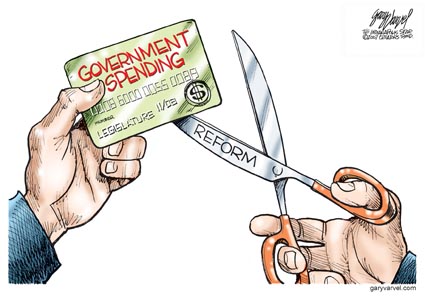Costa Rica News – Between 2010 and 2014, Laura Chinchilla’s government doubled their spending on rentals of buildings, properties and land, leading to a rise from ¢13,840 million in expenditure in the first year of the administration to more than ¢27,720 million this year.
 This is what was deduced, following an analysis carried out by La Nación into the national budget in the years spanning 2010-2014. These results do take inflation into account.
This is what was deduced, following an analysis carried out by La Nación into the national budget in the years spanning 2010-2014. These results do take inflation into account.
Although over the course of four years, Laura Chinchilla’s administration did double their spending, the majority if the increase took place in the final year.
Between 2013 and 2014, the building rental budget for accommodating the Central Government’s institutions jumped from ¢19,500 million to more than ¢27,500 million. That means it went up by a huge 39% from the 2013 figures.
The second largest pay-out increase for rented buildings and land occurred between 2010 and 2011, when it went up by 21%.
Chinchilla, who is currently in Guatemala, claimed that her government was working with the ideal of making the smallest possible increase.
“In fact, in recent years, ours was the administration which made the smallest budget increase”, insisted the ex-President.
Chinchilla added that she did not personally manage all the details and finer points of rentals, but in their first financial plan in 2011, they reduced the increase to a minimum and they “always had a lower increase rate in mind”.
The increase continues. Following the increase from previous years, the 2015 budget states that spending on rented property will go up by a further 16% from 2014 levels.
In the Law for the Regular Finances of the Republic for 2015, which the Congress is currently considering, ¢31,819 million would be set aside for rent and leases.
According to President Luis Guillermo Solís, this expenditure is unacceptable. As such, he has now asked that all of his ministers revise any leasing contracts in place.
The President wants to determine exactly how many contacts the Government remains bound to, how many they are able to withdraw from, and “how many contain exorbitant or one-sided clauses”.
City-Government. The Finance Minister, José Francisco Pacheco, states that the deadline for reaching a decision on these rentals will be the 16th September.
The Minister added that this administration’s plan is to construct a number of buildings under a plan entitled ‘Ciuded-Gobierno’ (City-Government). The first phase will consist of building offices for the Ministry of Public Work and Transportation and their sub-branches in San José.
Phase two of the plan will be to use those same properties for ministries with few employees and for groups such as the National Emergency Committee (CNE).
Pacheco added that the Finance Ministry has 20,000 sq. metres of land in Calle Blancos, in which they could build the “Cuidad Hacendaria” (Financial City).
In 2014, the Ministry has spent ¢8,515 million on rentals while they’re anticipating an expenditure of ¢9,610 million in 2015.
Meanwhile, the Ministry for Public Education (MEP) budgeted for ¢4,610 million this year.
The President’s Minister, Melvin Jiménez, said that it’s not ethical to have got tied up in rental contracts between March and April, before the Government changed.
He added that putting the construction plan into action would give them their own buildings in three or four administrations.
Translated by Leah Hendre from La Nacion

